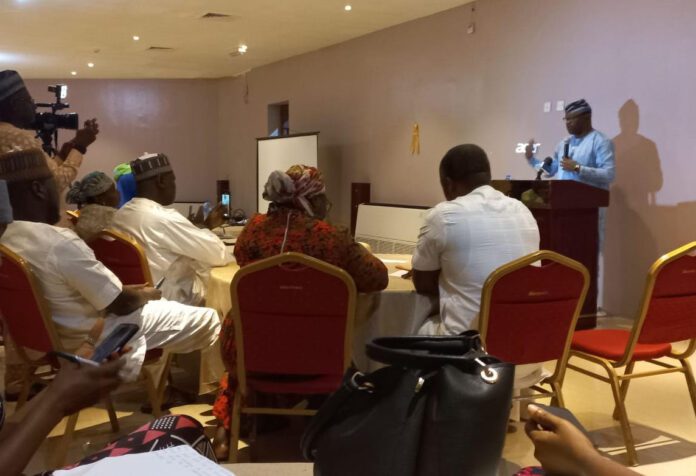*Desires that the government declare a state of emergency regarding youth unemployment
With the help of the Development Research and Projects Centre (DRPC), the Nigeria International Non-Governmental Organization Forum and the Civil Society Networks in Nigeria have urged the federal government to reverse the recent increase in fuel prices and move quickly to implement palliative measures to lessen the impact of the removal of fuel subsidies.
Additionally, they urged the federal government to declare a state of emergency regarding youth unemployment and to start an economic revival effort with the goal of improving skills and creating jobs to help make young people independent and less vulnerable to being recruited into criminal activity.
Amb Ahmed Shehu, the chairman of the North East Civil Society Network, gave a press briefing on the state of the country yesterday. He expressed grave concerns about the country’s condition and the level of insecurity in some areas of the region, including the all-too-common economic hardship, insurgency, kidnapping, and youth unrest.
He claimed that the country’s suffering and hardship were made worse by the government’s recent removal of subsidies without offering relief.
In order to represent the interests of the non-working class, Shehu urged the government to restore the nation’s refineries, implement affordable transportation, look into other alternative energy sources, review worker salaries, and include Civil Society in the presidential steering committee on palliative care.
The current economic climate, in his words, “has a negative impact on productive men and women from active socio-political and economic activities like farming and other means of livelihood. Therefore, through the effective and complete implementation of the Social Investment Programs Law, there should be a deliberate attempt to empower the citizens in order to meet their basic needs of life.
“Our sector has seen a growing demand for nonprofit services as a result of the cost-of-living crisis, a decline in donations as a result of the crisis, and an increase in energy costs (the removal of fuel subsidies is making it difficult for nonprofits to stay afloat.”
He counseled government at all levels to enhance citizen engagement and sensitization prior to making significant decisions, particularly on matters of national importance, and to make use of the National Orientation agency’s presence as well as CSO networks and its partners in educating the public about its policies and programs as well as their roles, rights, and responsibilities. This will support the promotion of inclusiveness, good governance, and efficient service delivery.
Shehu also urged the federal government to use technology, community policing, and other methods to combat banditry, insurgency, and kidnapping across the nation.
He recommended launching a multi-security coordinated attack to eliminate hot spots using land and air forces, especially in all of the volatile regions in the country’s northwest, north central, and northeast.
Comrade Peter Egwudah of the Humanitarian Country Team (HTC), who also spoke, lamented that the crisis in the North-East has lasted for more than ten years and has resulted in the displacement of over 2.1 million people as a result of both natural disasters like flooding and human-induced actions like insurgency, farmers’ crises, and herders’ crises, among other things.
He revealed that efforts are being made to launch humanitarian action in the north-western region to aid those who have been impacted by banditry and kidnapping in the area.
In order to guarantee that aid is effectively and efficiently distributed in crisis areas by NGOs without the support of anyone, Egwudah urged the government to implement the UN Localization Agenda.
Join Television Nigerian Whatsapp Now
Join Television Nigerian Facebook Now
Join Television Nigerian Twitter Now
Join Television Nigerian YouTUbe Now





